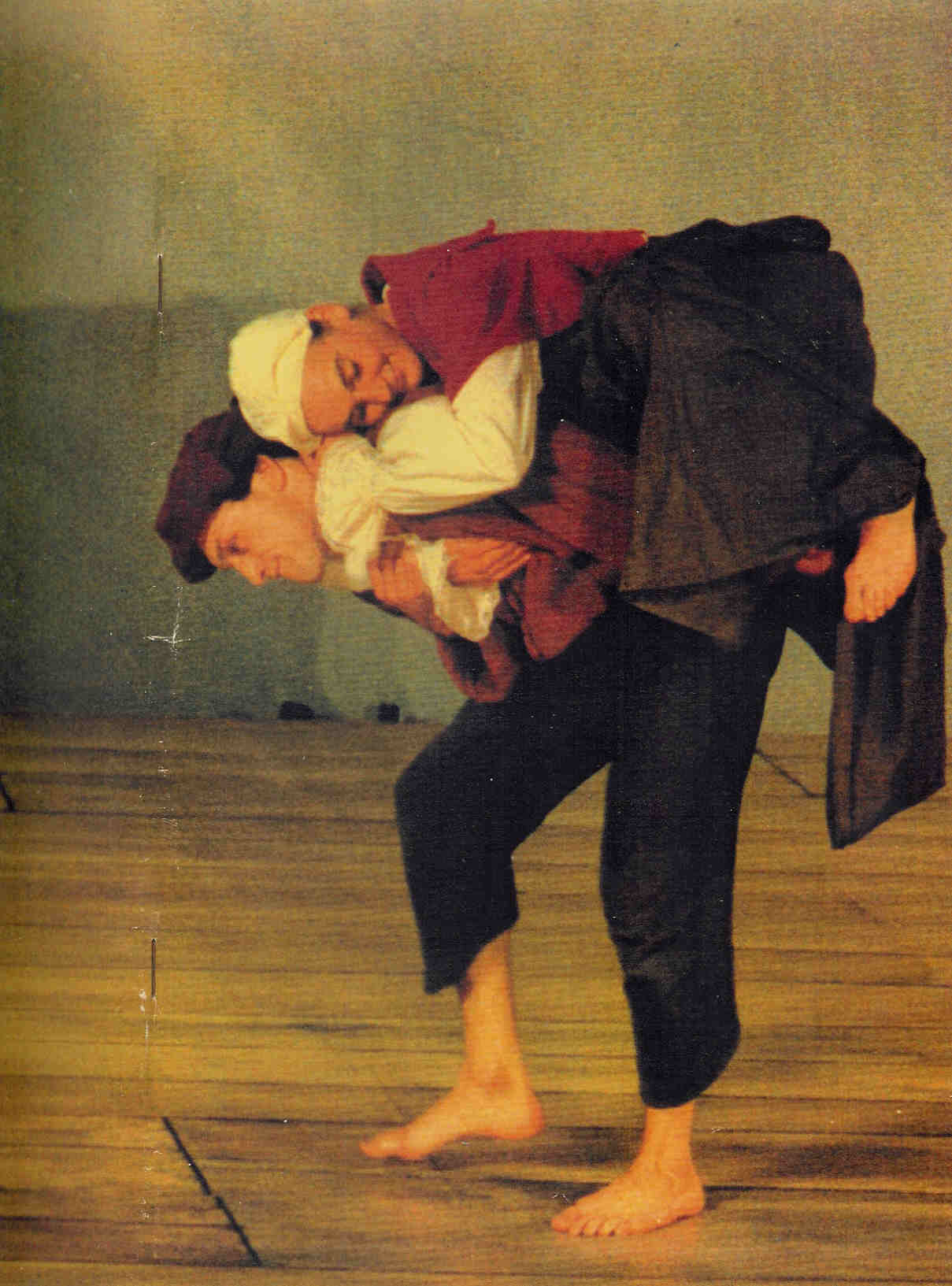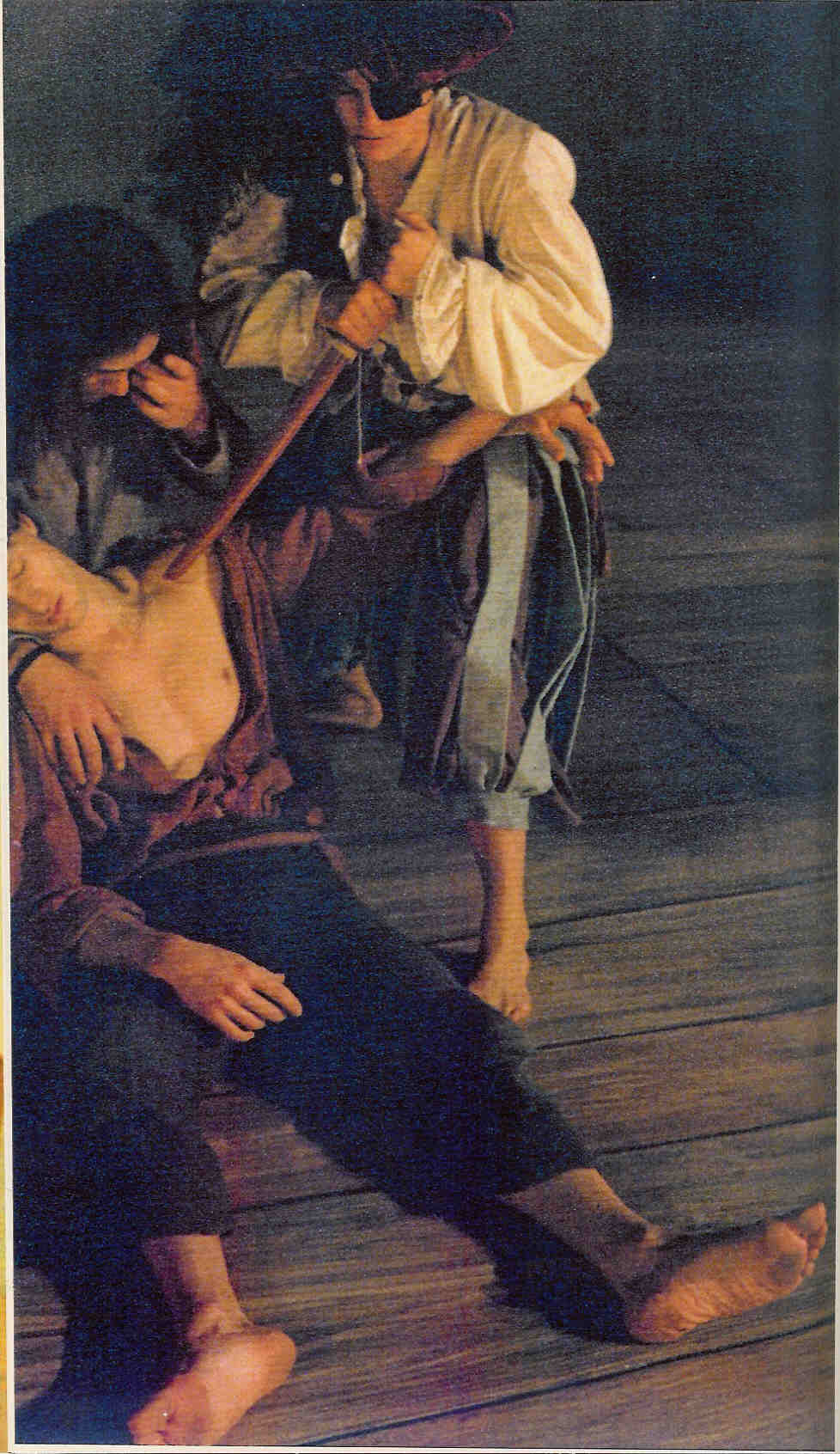 |
Thus started 80 jears of war, catastrophic for the spanish, the
echos of which still today move the heart of the dutch.
The short story of the play:
The comedians quarrel about the right moment for the beginning of
their story:
-when the twins escape the spanish soldiers after
the Storm of the Staues in Antwerp?
-or later, at the moment that
Geesje finds 'a document of great value' during the Storm of the
Statues in Amsterdam?
After they flee from Antwerp, Geesje is sick and tired of this
life of vagabonds. She makes her brother (Wolf) promise that he
will no longer take part in the destruction of churches, and they
decide to go to Amsterdam, to become 'Rich and Happy'. They give
riddles to each other in order to decide who will sleep while the
other walks: What do you loose when you get everything?
 |
Prince William of Orange, under pression of one of Amsterdams
Mayors, tries to calm down the people, but in vain.
In spite of his Promise, when they arrive in Amsterdam, Wolf
joins the ionoclasts.
The Church is ruined, to the great
distress of three Amsterdam women-citizen. They demand the
spanisch forces to restore order.
Geesje has found the document. When she understands that her
brother has been seen and cannot show himself any more, she
herself goes to the richest tavern of Amsterdam, to sell the
document. There she meets mayor van Riebeeck, who is furious
after the events of the day.
Wolf informs her of the fact that this Mayor is in search of a
wife to marry, and she decides to become Mrs. van Riebeeck.
The Spanisch arrive and the suppression of the heretics begins.
In spite of Wolf, who continues to show up on the wrong moments,
Geesje succeeds in getting invited at the Mayors house.
She sends her brother away and tels him she doesn't want to see
him any more.
While she transforms herself more and more to resign to the rules
of the Mayors house, Wolf joins 'De Geuzen' against the spanish
forces.
 |
The Spanish become more and more ferocious, and Wolf
distinguishes himself to such extend that one of the spanish
commanders, convinced that he has seen Geesje on the
battlefield, accuses Mayor van Riebeeck to protect one of the
most violent resistance-fighters.
Geesje denies to have any relation with the 'Geuzen', and the
Mayor asks her to marry him.
Finally the citizens are fed up with the cruelties of the
spanish, and throw them out. They find out the truth about Wolf,
when Geesje falls ill because she has submitted herself too much.
In her illness she finds the solution to the riddle: When you
have everything, you loose the longing. One of the women-citizens
goes to find Wolf on the battle-field.
The comedians finish the play, but not before they have
stipulated the moral of the story: If you make a riddle of
yourself, you're bound to loose the answer!